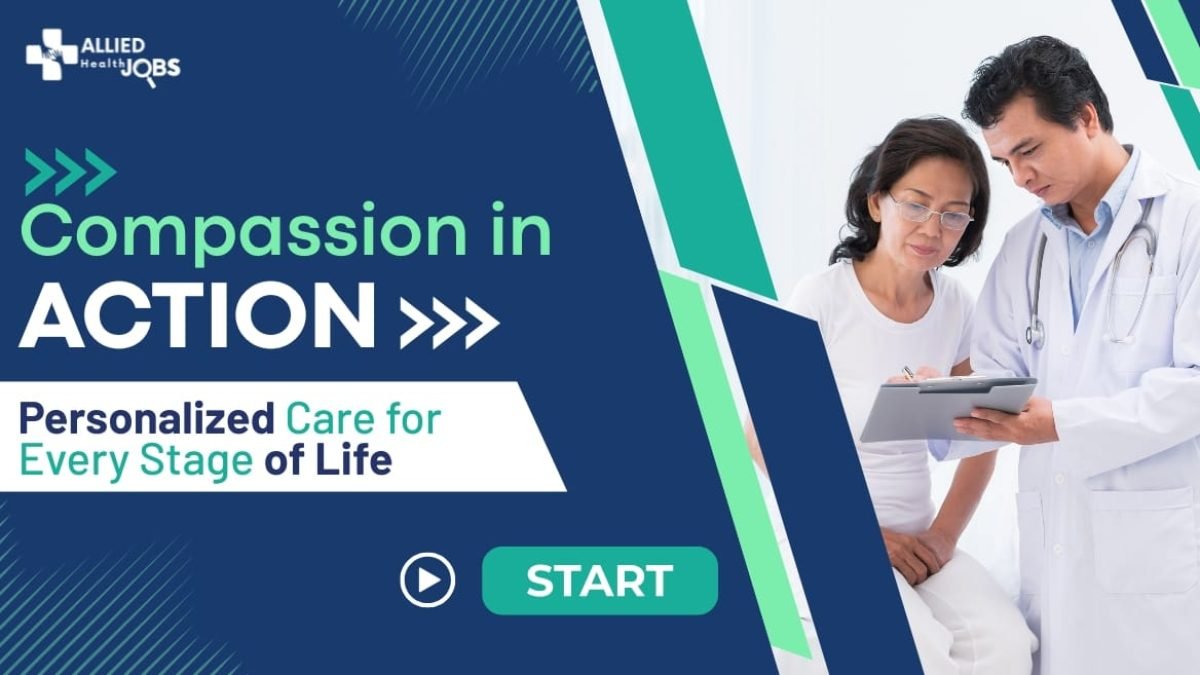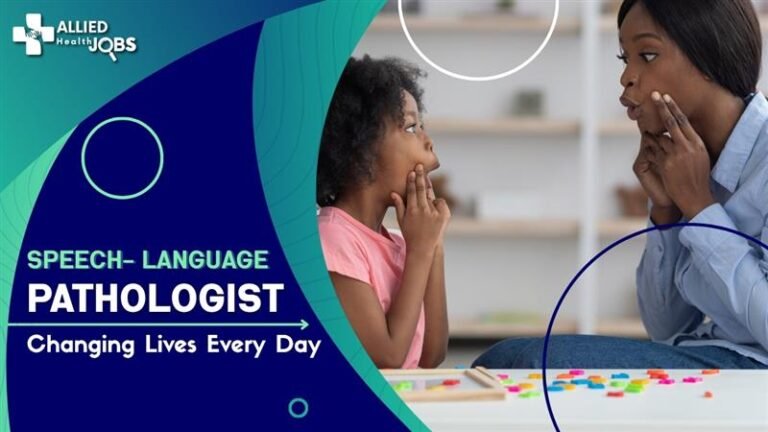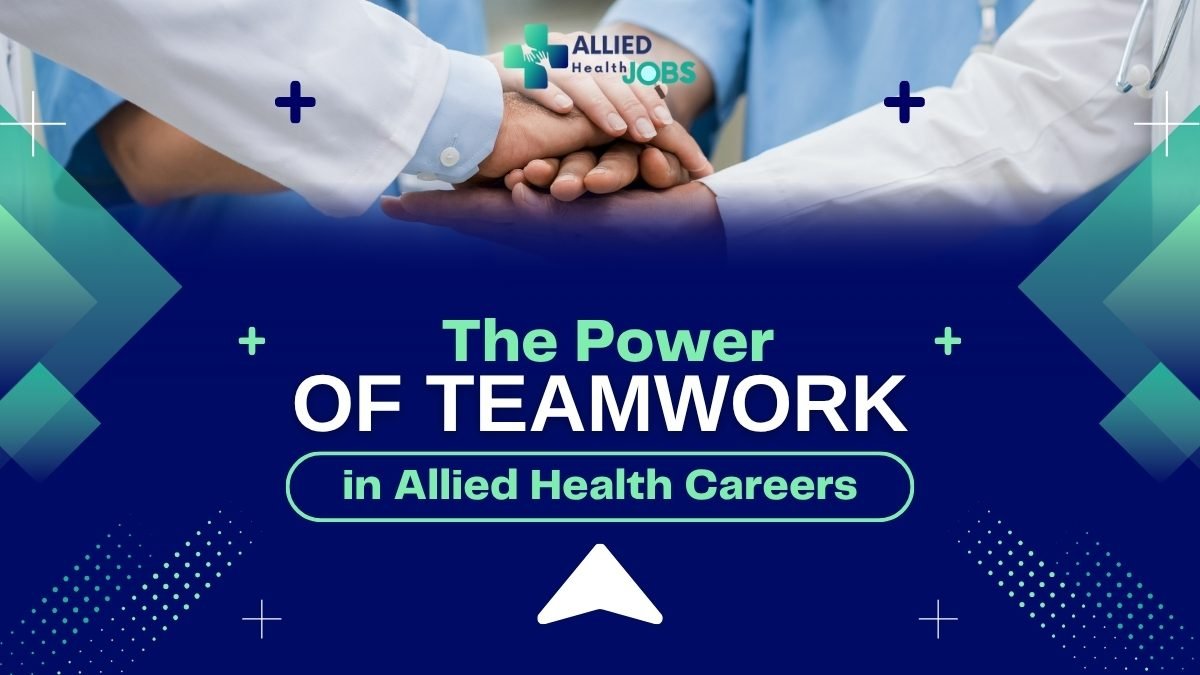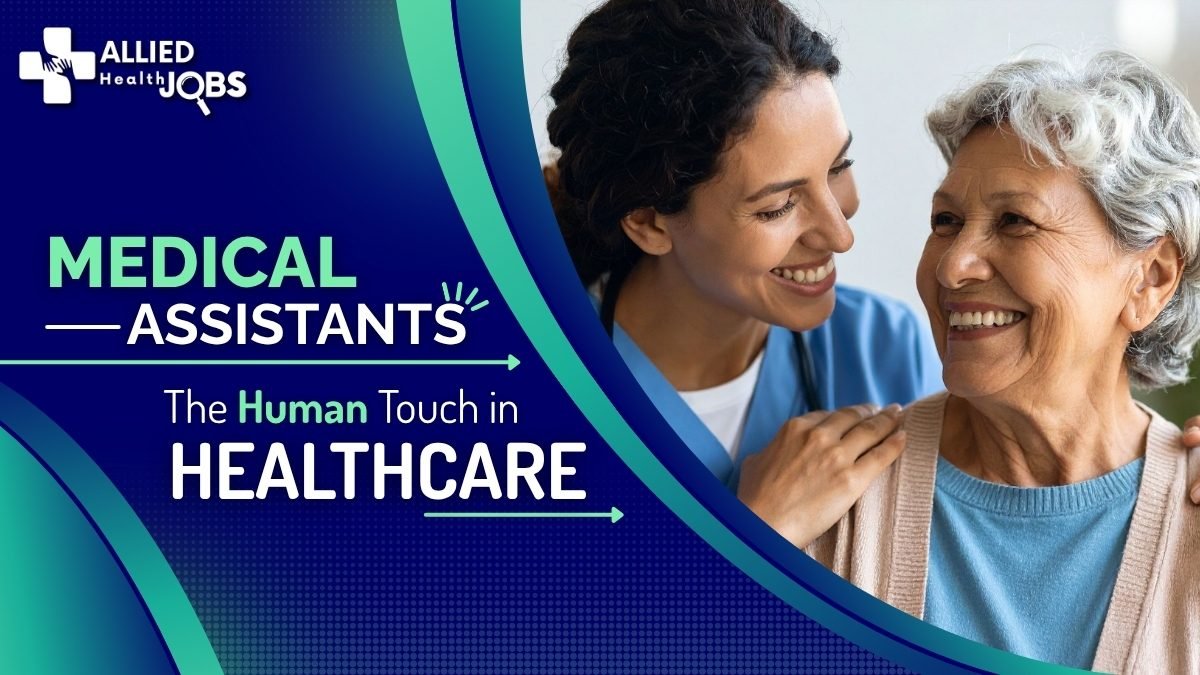Introduction
The worldwide phenomenon of aging is turning the society into a much higher demand for specifically geriatric healthcare. Allied health professionals play a crucial role in integrating multidisciplinary care to meet the demands of geriatric patients in terms of their quality of life and well-being. Roles such as physical therapists, dietitians, and speech-language pathologists will all play a role in geriatric care, each providing unique perspectives. These professionals play an essential role in the maintenance of mobility, chronic disease management, and independence in older adults.
This blog aims to illuminate the pivotal role of allied health professionals in geriatric care, with a special focus on the elderly population. It will portray how these great allied health professionals add up to the improved health outcomes and quality of life. Additionally, it will include expanding careers in elder care, emphasizing the increasing need for specialty-trained professionals in this area. The benefit for individuals is to understand the allied health importance in the geriatric care context and therefore see the most vital contribution that such professionals could realize through their careers in this dynamic health care sector.
Understanding the Allied Health Professions in Geriatric Care

Who Are Allied Health Professionals?
Allied health professionals are those who do not fall under the categories of physicians, nurses, or pharmacists but render important medical care. They work in fields of rehabilitation, diagnostics, nutrition, or mental health, and do work with physicians and caregivers in comprehensive plans for treatment.
Importance of Allied Health in Older People
With growing numbers of older people with chronic diseases, mobility issues, and cognitive impairment, allied health professionals, in many situations, fill the gap between traditional medical care and supportive therapies. Much will come in terms of preventative care, rehabilitation, and patient education so that older adults can maintain dignity and independence for as long as possible.
Important Allied Health Professions in Geriatric Care
Physical Therapists: Mobilization and Fall Prevention
Physical therapists fulfill a critical role in geriatric care, assisting elderly patients in regaining their strength, balance, and coordination following injuries or surgeries. What they actually do:
- Design individual exercise programs for fall prevention.
- Help in pain management for arthritis and similar disorders.
- Facilitate rehabilitation for those recovering from strokes or fractures.
- Educate patients and caregivers in proper body mechanics.
Occupational Therapists: Facilitating Independence in Activities of Daily Living

Occupational therapists (OTs) work so the elderly can safely carry out their activities of daily living while retaining as much independence as possible. Their work includes:
- Assessing and modifying homes to reduce the risk of accidents.
- Teaching adaptive techniques for dressing, cooking, and hygiene.
- Recommending assistive devices such as grab bars and ergonomic tools.
- Helping individuals diagnosed with dementia to sustain cognitive function.
Speech-Language Pathologists: Treatment of Communication and Swallowing Disorders
Though not normal with aging, speech and swallowing difficulties sometimes coexist with conditions such as Parkinson’s disease or stroke. SLPs do the following:
- Help seniors improve their speech and language abilities.
- Treat swallowing disorders (dysphagia) to prevent aspiration pneumonia.
- Provide cognitive therapies for memory and problem-solving skills.
- Train caregivers in communicating with dementia patients.
Dietitians and Nutritionist: Ensuring Adequate Nutritional Intake
Nutrition is vital for the health of any elderly person. What the dietitians do is:
- Prepare the menu according to requisite diets (e.g. diabetes or heart disease).
- Preventing malnutrition and dehydration among the elderly.
- Teach families and caregivers the right things to eat.
- Address weight management issues for overall well-being.
Respiratory Therapists: Providing Assistance for Seniors Who Have Breathing Disorders
Respiratory therapists provide assistance for seniors with chronic respiratory conditions such as COPD and sleep apnea. The responsibilities of a respiratory therapist include:
- Teaching breath control techniques and exercises.
- Managing oxygen therapy and assisted ventilation.
- Teaching lung disease prevention and symptom management.
- Assisting with pulmonary rehabilitation programs.
Mental Health and Social Work Professionals: Addressing Emotional Well-being
Aging, in itself, is full of emotional and mental health burdens like depression, anxiety, and loneliness. In this regard, social work professionals and mental health counselors are instrumental in:
- Providing emotional support through therapy and counseling services.
- Connecting seniors to community resources and support groups.
- Helping with advance care planning and end-of-life decisions.
- Advising family members on issues related to elder care and caregiving.
The Rising Demand for Allied Health Professionals Geriatric Care
Growing Career Opportunities in the Medical Profession
As the senior populace is to double by 2050, the rising demand for allied health professionals is henceforth being expedited. Employment opportunities in physical therapy, occupational therapy, nutrition, and mental health are highly encouraging, with due benefits such as a good pay scale and rewarding prospects in ameliorating the conditions of aged patients.
Advances in Technology and Telehealth Services
Today, through modern technology, in geriatric care allied health professionals continue offering telehealth services to seniors with impaired mobility. Virtual consultations, remote monitoring, and AI-assisted rehabilitation programs further provide access and serve efficacy to healthcare delivery systems for elderly care.
Bridging the Gap of Special Geriatric Training
Hence, enlarged training in elder care will conform to increasing demand. More institutes and professional organizations are on the rise to provide certificates and continuing education courses for allied health professionals wanting to specialize within the geriatric healthcare field.
Conclusion
Allied health professionals terribly and importantly form the foundation underlying geriatric service provision to individuals whose lives they really do improve dramatically with their services. The varied skills of allied health professionals suffice to meet needs ranging from mobility restriction management and nutritional intake maximization to mental support and respiratory therapy. Thus, care provided to older people becomes holistic, compassionate, and dignified while responding to their very special needs.
The ever-increasing need for geriatric healthcare services ensures a secure and enhancing career environment for allied health professionals. These professions offer a unique opportunity in the service of bringing real change to the life of an elderly, thus making possible professional gratification together with personal fulfillment. In case one is inclined toward changing careers or interested in growing in the field of medicine, geriatric care will prove to be an exciting and rewarding career option.
One should check Allied Health Jobs for updates on healthcare careers and job opportunities. It offers insights into the widening area of geriatric care and connects practitioners with opportunities.
Follow us on Social Media: LinkedIn | Facebook | Twitter | Instagram












